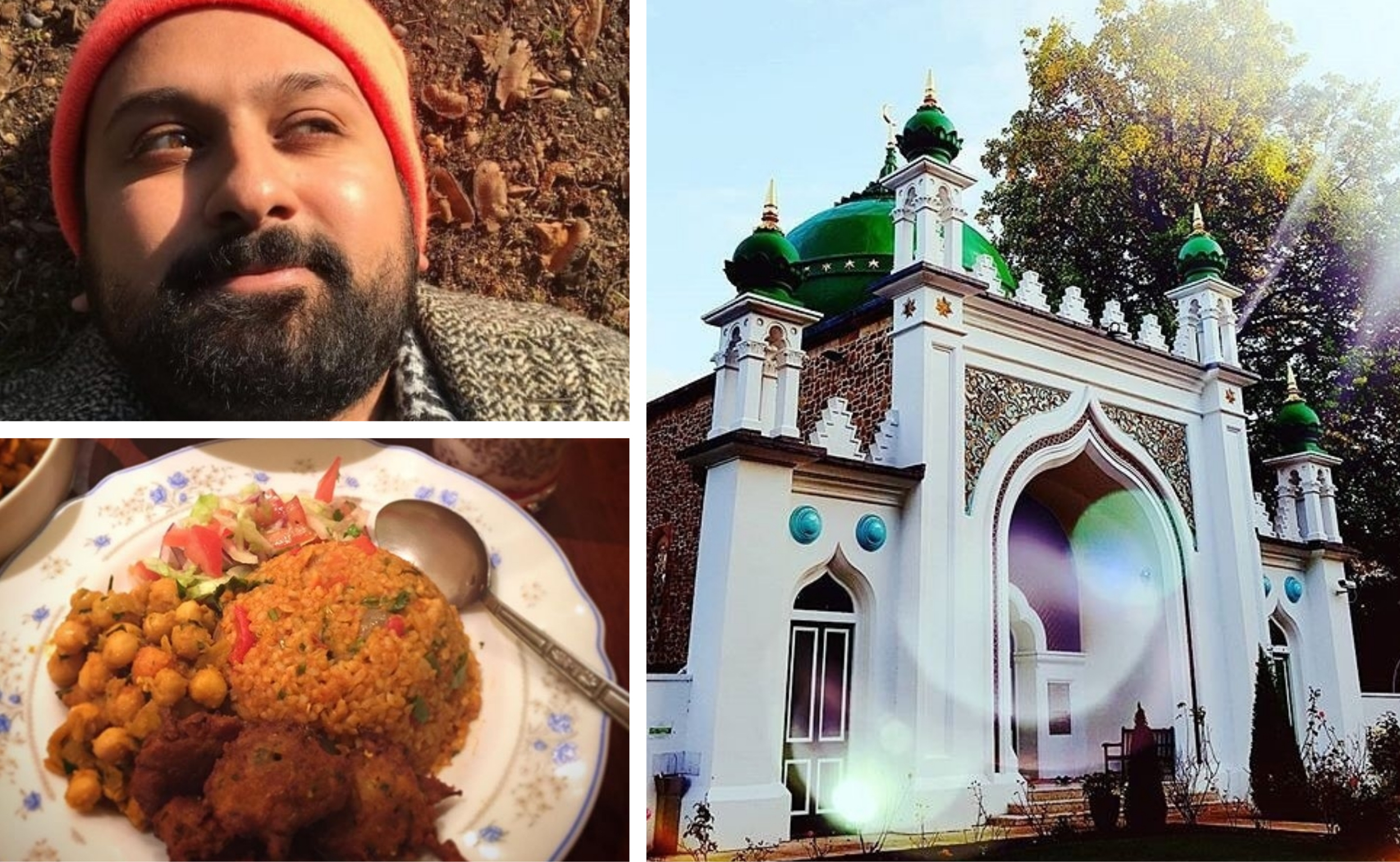All this month at RightsInfo we’ve been talking to people about their experiences of Ramadan. The month-long holy period for Muslims across the country is a chance to pause, take stock, and reflect, and also touches on some of our most basic human rights.
Human rights are for all of us, and we’re all free to follow whatever religion we choose, or indeed none at all. This applies everywhere. It applies in our schools, in our homes, and at work, and society only benefits when we know more about our fellow citizens.
Here are just a few voices from across the UK, about what Ramadan means to them.
‘Food, For Everyone, Is An Easy and Tasty Opening’
“I guess, generally, it’s a time of reflection, just thinking about those less fortunate and going through hardship. It’s really a time for families to come together and spend more time together. And, it’s definitely a time to think about those who don’t really have food.
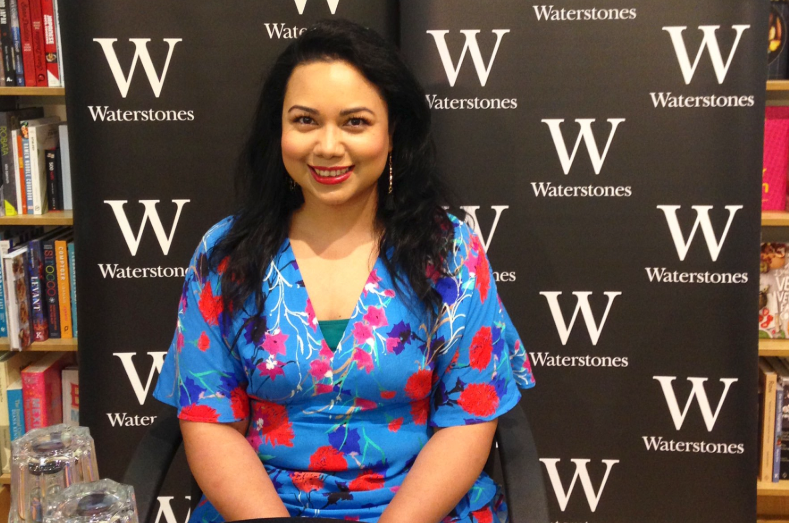
Image Credit: Dina Begum / Twitter
“For me, it’s a time reflecting back on the previous year, and also thinking about how I can better myself as a person, helping as best I can. I guess just being mindful as to how I can help those who are less fortunate.
“[It’s] also about spending time with family – making active plans, and cooking together and spending more time together, and that’s a really big part of Ramadan. Food it one of the biggest parts of Ramadan. You also share food with your neighbours, whether they’re Muslim or non-Muslim, and with family and friends we do the same thing.
Food is one of the biggest parts of Ramadan. You share food with your neighbours, whether they’re Muslim or non-Muslim, and with family and friends we do the same thing.
Dina Begum
“I guess food, for everyone, is an easy and tasty opening. It’s a great way to connect people and learn more about Ramadan and fasting and why we do it. That’s a good way of doing it, and everyone takes a dish and explains what they’ve made and it’s kind of a social gathering.
“Especially people you don’t normally see, it’s kind of a pause, you go over to their house with food, rather than just going over for dinner. You take something over there and it’s giving them a bit of time for themselves as well.
Video Credit: Great Big Story / Facebook
“Today I’m making a chicken and mushroom pie and a cake, so it varies quite a bit. It’s nice, in a way, to have what you’re craving as you’re not eating all day, so you put in a bit more effort to make something nice.
“It’s almost like a community on social media. It’s a nice way to stay in the loop and you share with your followers what you’re having and people do engage and ask what am I making, as they’re quite different to what I normally post [as I’m Bangladeshi].
“Those during Ramadan tend to be unique to Ramadan, so it’s nice to explain what we’re having and why we’re having them, some of them have traditional reasons. It’s nice to kind of share that with people, it’s nice to share it with family or friends who can’t be there during Ramadan.”
Dina Begum is a food writer, cook, and eater who has been featured on Metro.co.uk, The Independent and Great British Chefs. You can follow her on Twitter and Instagram.
‘I’d Encourage Everyone To Try Just Once In Their Life’
“Ramadan, which is a Holy month for Muslims, is a time for me to strengthen my relationship with my God and increase my righteousness. Fasting, or ‘Saum’ which is the Arabic word for fasting, isn’t simply refraining from food and water from sunrise to sunset.
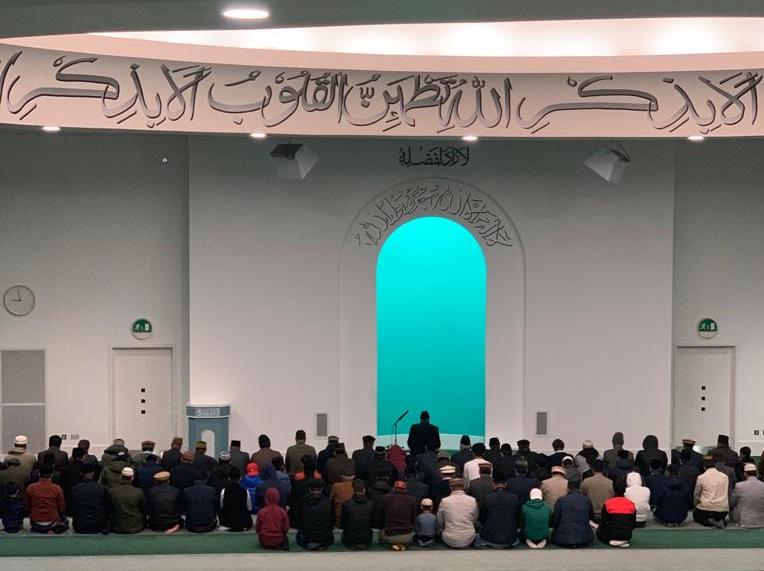
Image Credit: Jem Collins / RightsInfo
“Rather, it is a time when Muslims like myself engage themselves in the remembrance of God more so than before, strive to do good and help and remember those who may be less fortunate than themselves.
“We wake up early, eat breakfast then continue with our daily lives.
“It’s surprising how much you can actually get done when you’re not completely consumed by lunch and coffee breaks throughout the day!
“Some of my friends ask how hard it must be waking up at around 3am to get some food into your system and, yes, to be honest for the first few days it is somewhat of a challenge, but you just get used to it and in my eyes this encourages self-discipline, which is something that benefits us in everyday life.
We’re kicking off our #Ramadan series and celebrating the right to freedom of religion with a look at the Baitul Futuh Mosque in Morden just before #Iftar – it’s the biggest in London 🕌 pic.twitter.com/AFoLSYL7iV
— RightsInfo (@rights_info) May 15, 2019
“On a weekly basis young men like myself head to the streets of London with boxes of food for the homeless. But in Ramadan this all changes as it’s reported that in this month specifically, the Holy Prophet Muhammad (may peace and blessings be upon him) would generously give to the poor and needy.
“Thus in light of this, on a daily basis, we prepare food, arm ourselves with spoons, water, and food packages and once again wonder the streets looking for those who may need a helping hand.
To say the least, this Blessed month is much more than just not eating or drinking. It’s a time for self reflection and discovery.
Sabah Ahmedi
“To say the least, this Blessed month is much more than just not eating or drinking. It’s a time for self-reflection and discovery and something which I’d encourage everyone to try just once in their life to see what it’s all about!”
Sabah Ahmedi is one of the UK’s youngest Imams, and is based at the Baitul Futah Mosque in South London. You can follow him on Twitter.
‘I Felt A Sense Of Loss I Couldn’t Explain’
“It’s the month of Ramaḍān and, as a Muslim, it means it’s time for me to reflect and re-evaluate. It’s a chance to look back at years gone by and the progress I have made as a person – and to think about the role Islam plays in my life.
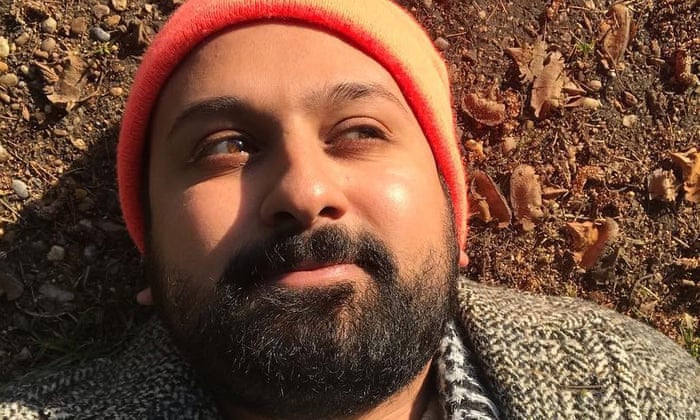
Image Credit: Ferhan Khan / Instagram
“Going into secondary school and reaching puberty I realised that I was attracted to the same gender rather than the opposite gender – I recognised that this made me ‘gay’. I felt ashamed of being gay because of the homophobia I witnessed in school and the way that homosexuality was condemned in the Islamic teachings I received.
“I couldn’t at that stage find a way to reconcile my sexuality with my faith, so I decided to start to turn my back on Islam.
All this month we’re celebrating #Ramadan, and the #HumanRights it embodies 🙌
Today, we speak to @iamferhankhan who explains that religion and our basic rights to equality and identity don’t conflict.
You can read his piece in full tomorrow 📝 pic.twitter.com/jL0IccO0R6
— RightsInfo (@rights_info) May 19, 2019
“As the years went by, I purposefully focussed less and less on the faith I was brought up with and embraced a hedonistic ‘western’ lifestyle. I felt that creating a distance from Islam and embracing what was formerly forbidden to me; I would be moving closer to who I really was.
READ MORE >> You can see Ferhan’s piece in full here.
“I sought salvation in an LGBTQ+ community which rejected me for my race; I drank alcohol to excess and made poor choices in the realm of dating; all to the detriment of my physical, emotional, and spiritual health.
“I began to feel a sense of loss which I simply couldn’t explain and my search for an answer led me back to the path of Islam.
Ramadan means something much more authentic to me now than it did before.
Ferhan Khan
“I went to the Inclusive Mosque Initiative where I prayed alongside other Muslims that rejected gender segregation and homophobia. I went to meet-ups with ‘Hidayah’; a Muslim LGBTQ+ support group. I found a community of Muslims that were allies to and identified as LGBTQ+ and I have never been happier.
“Ramaḍān means something much more authentic to me now than it did before. It’s a time for me to reflect on the progress I have made in self-acceptance and self-love.
“It’s a time when Muslims come together and living far from home I feel a sense of community around this time of year with my other LGBTQ+ Muslims; we’ll break fast together and we’ll look forward to Eid together.”
Ferhan Khan is a writer, broadcaster, activist and Diversity Role Model. You can follow them on Twitter.
‘It Enables Me To Work On Being The Best Version Of Myself’
“Ramadan, to me, is a time to rejuvenate and increase my connection with God. It enables me to work on being the best version of myself, recognising the blessings we have in life, and brings about the feeling of togetherness.
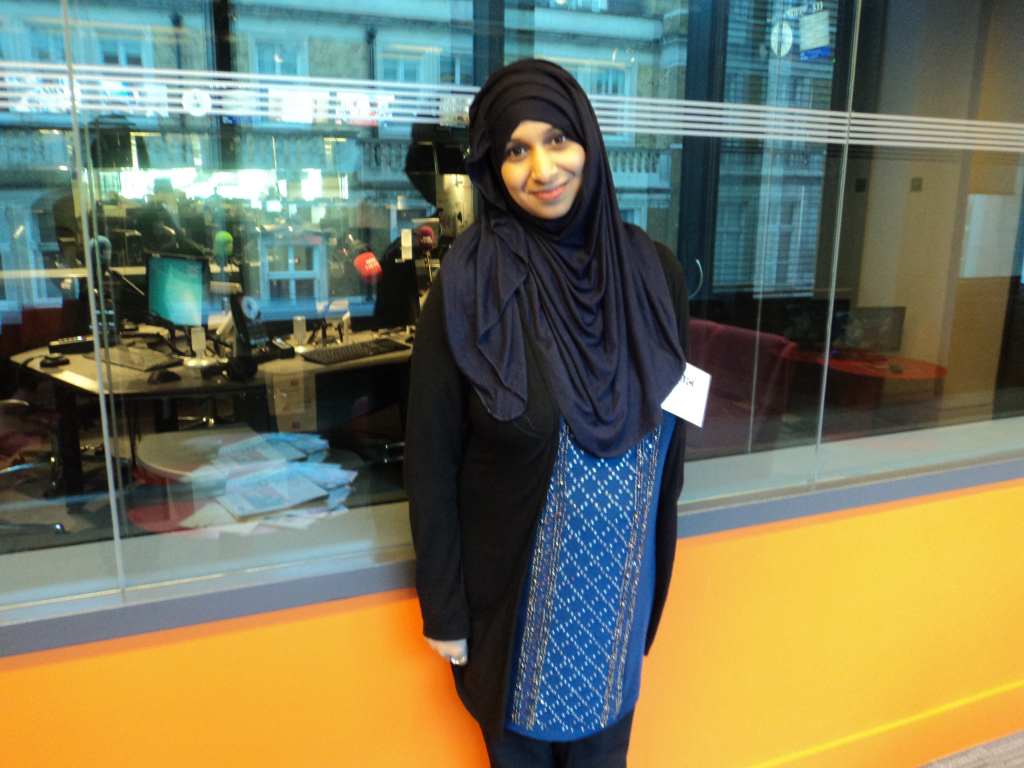
“The month of Ramadan was when the Qu’ran was revealed, and we are encouraged to get closer to God during this month and do good deeds, such as give to charity or extend a helping hand.
“Through fasting, we really appreciate the food and drink that we have, and it makes us think of others around the world who are struggling without food – the only difference is that we have something to break our fast with.
Ramadan brings about the feeling of togetherness
Tasnim Nazeer
“Fasting enables us to detox, self-discipline ourselves, and ultimately become better versions of ourselves during this Holy month.”
Tasnim Nazeer is an award-winning journalist, author, and writer. Her work has featured on Huff Post, The Guardian, BBC Radio 2 and more. You can follow her on Twitter.

